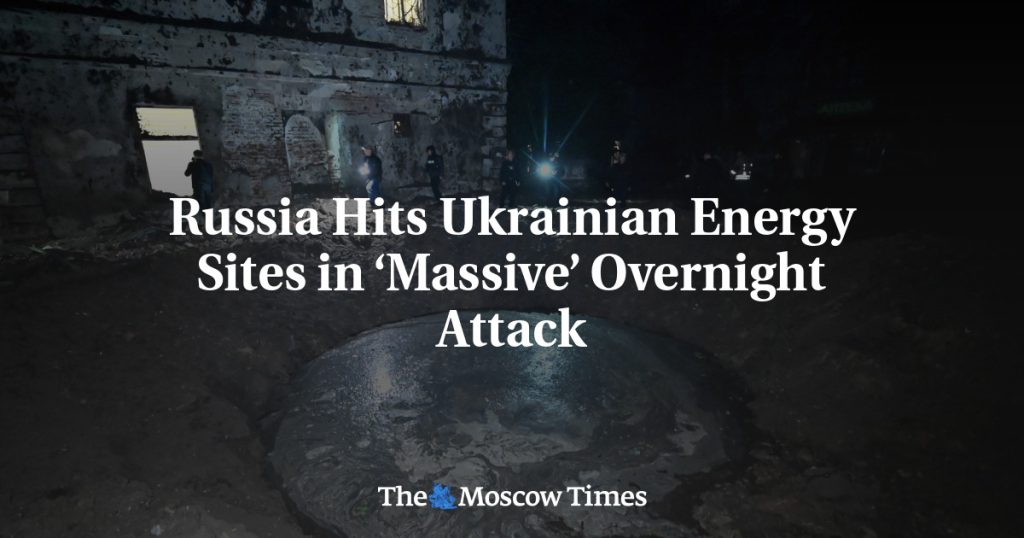Russia launched a significant missile strike on Ukraine, targeting energy facilities and causing damage to power plants in various regions. The ongoing conflict has escalated in recent months, with Moscow’s strikes leading to blackouts and prompting Ukraine to urge consumers to conserve energy. The army confirmed the missile attack, stating that the country’s energy infrastructure, particularly in Dnipropetrovsk, Ivano-Frankivsk, and Lviv regions, was targeted. The Energy Minister reported damage to equipment, with four thermal power plants operated by DTEK sustaining significant damage.
The Russian air force fired a total of 34 missiles during the attack, with 21 being intercepted and shot down. As a result of the strikes, two individuals were injured in the central city of Kryvyi Rih. To address the limited energy supplies, the head of the western Lviv region advised residents to minimize the use of energy-intensive appliances, such as kettles, irons, washing machines, and microwaves, between certain hours. The energy system in Ukraine is struggling to maintain the balance of production and consumption, highlighting the critical need for conservation measures.
In response to the missile strikes, Ukraine reportedly conducted one of its largest-ever attempted drone attacks on Russia, targeting the southern Krasnodar region and the annexed Crimean peninsula. The defense ministry claimed that Ukrainian air defenses destroyed a total of 66 drones over the Krasnodar region and two more over the Crimean peninsula. The conflict between the two countries shows no signs of abating, with both sides continuing to engage in military actions that have severe consequences for civilians and infrastructure.
The ongoing conflict in Ukraine has taken a toll on the country’s energy infrastructure, with repeated attacks causing damage to power plants and energy facilities. Russia’s missile strikes have intensified in recent months, leading to blackouts and disruptions in energy supply. The situation has prompted Ukraine to implement measures to ration energy consumption, urging consumers to reduce their usage of electricity during peak hours. The damage caused by the missile attacks has resulted in severe repercussions for the country’s energy sector, exacerbating the already challenging conditions faced by the Ukrainian population.
The missile attack carried out by Russia on Ukraine targeted key energy facilities in several regions, causing significant damage to equipment and posing a threat to the country’s energy security. The air force’s actions have resulted in casualties and injuries among civilians, highlighting the devastating impact of the conflict on the population. The need for conservation measures and the strain on the energy system underscore the urgent need for a resolution to the conflict that addresses the root causes of the ongoing hostilities. The escalation of military actions between the two countries further complicates efforts to restore stability and security in the region.
As the conflict between Russia and Ukraine continues to escalate, with both sides engaging in military operations that target critical infrastructure, the situation remains volatile and unpredictable. The exchange of missile strikes and drone attacks has led to civilian casualties and damage to energy facilities, exacerbating the humanitarian crisis in the region. The ongoing conflict underscores the need for concerted international efforts to address the root causes of the conflict and facilitate a peaceful resolution that ensures the safety and security of the affected populations. The damaging impact of the missile strikes on Ukraine’s energy infrastructure highlights the urgent need for a diplomatic solution to the conflict that prioritizes the well-being and safety of civilians in the region.


